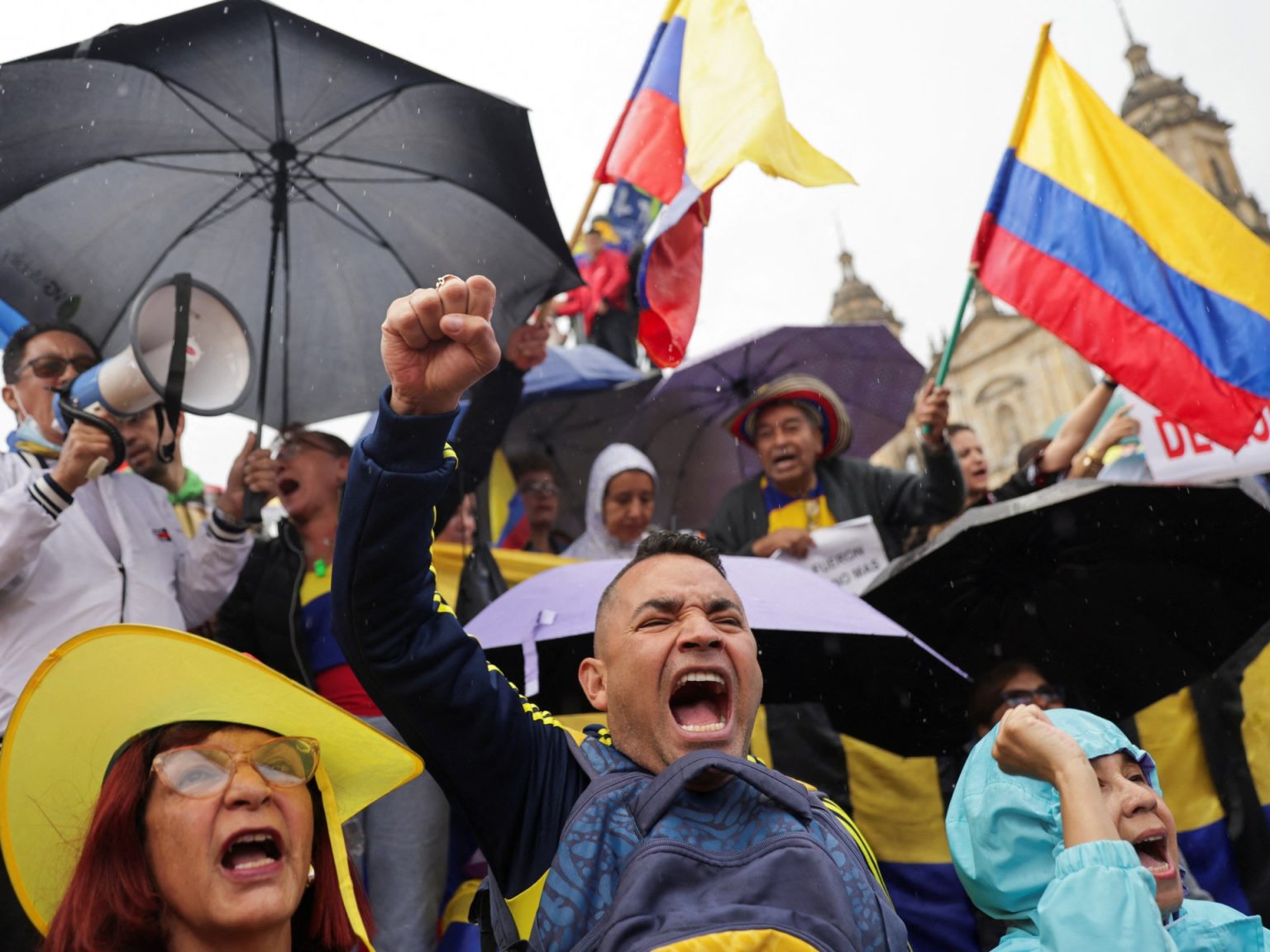Protests have erupted in Colombia as thousands of people rally against President Gustavo Petro’s social reform agenda. The demonstrations have been ongoing since Petro took office in 2022, with recent rallies drawing around 70,000 people in Bogota alone. The protests stem from dissatisfaction with Petro’s proposed economic and social reforms, which include attempts to reform healthcare and other sectors. Opposition to his government’s policies has been fueled by concerns about possible changes to the constitution to push through reforms that have been blocked by congress and conservative business groups.
One of the main points of contention is a proposed health reform that aims to overhaul the country’s healthcare system by taking power away from insurers and improving access to care. The government has also taken control of two major insurers that were accused of failing to properly care for patients, further exacerbating tensions with the opposition. Despite the setbacks, the government plans to introduce a new version of the health reform during the upcoming legislative session in July. In addition to healthcare, lawmakers are also debating pension and labor reforms as part of Petro’s broader agenda for social change.
Supporters of Petro’s reforms have also taken to the streets to voice their approval, but the protests have largely been dominated by critics calling for the president to step down. Petro has labeled the demonstrations as an attempt to overthrow his government, referring to them as a “soft coup” designed to thwart his reform efforts. The opposition has grown increasingly vocal in its demands for Petro’s resignation, citing concerns about a decline in the country’s situation and dissatisfaction with his handling of issues such as healthcare and peace negotiations with armed groups.
Despite being the first leftist leader to govern Colombia, Petro has faced challenges in maintaining his hold on power since losing majorities in the legislature shortly after taking office. His approval rating has also dropped significantly, with many Colombians expressing pessimism about the direction of the country under his leadership. Petro’s policy of “total peace”, aimed at ending decades of armed conflict, has also encountered setbacks as concessions to armed groups have sparked controversy and led to reports of violations.
As tensions continue to escalate between Petro’s government and its critics, the prospect of further unrest looms over Colombia. Protesters remain steadfast in their opposition to the president’s reform agenda, with calls for his resignation growing louder. The government, meanwhile, is pressing on with its efforts to push through changes in key sectors such as healthcare, pensions, and labor. The coming months will be crucial in determining the fate of Petro’s presidency and the future of Colombia’s social and political landscape.


